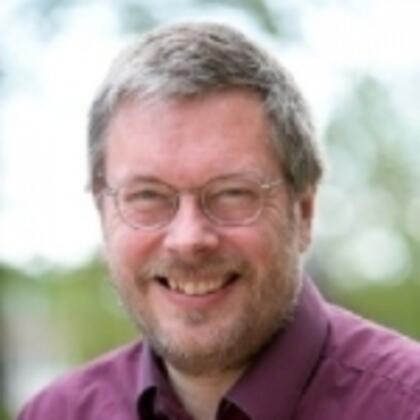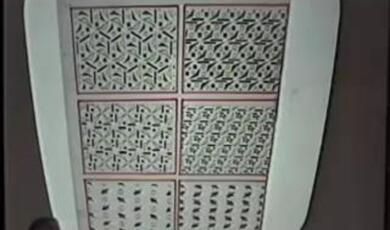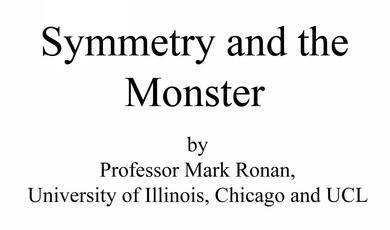Unplugging computers
Share
- Details
- Text
- Audio
- Downloads
- Extra Reading
Download Text
Unplugging computers
Professor Harold Thimbleby
The National Curriculum in ICT covers use of computers that children are expected to work through, and the ECDL (the European Computer Driving Licence) follows on naturally as, really, a job-seeker’s vocational qualification in using computers.
The conventional view about computers and education, then, is about using the technology, not understanding it. The conventional view is analogous to learning to drive a car rather than learning the underlying physics or chemistry. You end up not really understanding why cars skid, how to start them with a flat battery, or even how to drive in the snow — the road jams earlier this year when there was a sudden fall of snow happened largely because drivers did not understand physics nor, if they did, how it applied to driving on slippery roads! Lack of real knowledge can be costly. When today’s children grow up and become managers in large organisations, they will procure huge computer systems that cause further problems. In turn, there will be more calls for computer literacy so we can employ people who can use these complex systems!
At school there is a sort of ‘road awareness’ approach to ICT, and the ECDL follows that up with a computing qualification that is actually called a driving licence. Nowhere along the ride does anyone, as it were, open up the bonnet and show how the engine works, or how the physics of gears relates to the driving experience. So, how to use the clutch is a skill, not something to be understood.
We can push the car/computer analogy too far. One of the main differences is that cars are pretty much standardised: thus, the accelerator pedal is on the right, even in the USA. In contrast computers vary enormously: any training on how to use them ends up being tied into proprietary models. Furthermore, computers are not as easy to use as they should be, and training ends up with users acquiescing to bad design, rather than having the true understanding of what is going on that would lead to improved design.
In contrast, in established subjects like physics, “public understanding of science” is routine, and there are numerous road shows and exhibitions, many great fun. There is something playful and worthwhile about real science that we seem to have forgotten when it comes to computers! Ironically, we go around saying “only children understand them” — and yet we’ve produced a national curriculum that has taken all the fun out of computer science, as if we wanted to tell children that computers are really adult things that have to be taken seriously in case you want a job working with them.
There is no “public understanding of science” equivalent for computer science — yet. There is some general, important and real knowledge about computers that goes deeper than knowing how to ‘drive’ them, itself an issue often tied up with learning how to cope with proprietary software (using proprietary software, so-called IT literacy, has got little to do with lasting knowledge).
In tonight’s lecture, we’ll start to put this right, and as we do so, we’ll find that there is more interesting stuff to computing than most people expect, and that it’s really not that complicated.
Binary
These lecture notes won’t tell you how binary works: the practical exercises in the lecture will. And they will give you some idea how compression and error recovery work too — which are normally considered advanced topics that would be covered in a university course.
For those who already know how binary works, tonight’s message is more subtle: can’t more of computing science be taught like this? Wouldn’t everyone learning about computers be better off if they learnt principles rather than how to cope with the layers of technology? If we make the analogy with cars again: there’s some interesting science behind why petrol is inflammable and how internal combustion engines work — and learning these ideas is more general, more fun, and is, in an important sense, more useful (e.g., for personal safety) than learning how to use an accelerator pedal, which is only the practical side of putting the knowledge into action.
The following worksheet is completed by filling in each empty box with words and letters found by following the arrows. We could have called it “Ziv-Lempel Coding” if we had wanted to be pompous and precise, or called it “zip” coding if we wanted to discuss PC compression and give it its more familiar name. If you work through the exercise you are “unzipping” a file. Zip files often come to you in email attachments. It’s fun to see how the method works by uncompressing a children’s rhyme by filling in the blanks in the worksheet.
It’s easily believable after filling in the slots above, that Ziv-Lempel can easily and halve the size of computer files. Now you see why. Could you do any better? Can you use the method to compress your own message? … and now you’ve got some insights into deep ideas about zip files without plugging in a computer.
This simple exercise is just one of many that can make the science understandable. I’ve met professional programmers who do not understand compression. Something is going deeply wrong with conventional approaches to teaching computing.
Computers Unplugged
Tonight’s “Unplugging computers” lecture has been inspired by the Unplugged Project, which is run from http://unplugged.canterbury.ac.nz. Extensive details of this project, including classroom resources, teachers’ packs, and research papers, is available on the web site.
The web site provides ideas for twenty off-line activities, like the one above: games and puzzles that are suitable for people of all ages and backgrounds (but especially for primary school children, and anyone else with a similar playful attitude to learning). The activities cover a wide range of topics, from algorithms to artificial intelligence, from binary numbers to boolean circuits, compression to cryptography, data representation to deadlock. In particular, by avoiding the use of computers altogether, the activities appeal to those who lack ready access to computers, and are ideal for people who don’t feel comfortable using them. The only materials needed are things like cards, strings, crayons, and other household items. Put another way, the ideas are about the science and maths behind computing, and not at all hung up on the technology. While the exercises are ideal for children, they free adults from hang-ups worrying whether the computers will work, and they free students from hang-ups over unnecessary detail.
Unplugged activities were originally aimed at the five to twelve year-old age group. They have been used in the classroom, in science centre demonstrations, in the home, and even for outdoor community fun days — and right up to postgraduate computer science teaching, where they’ve been found to be very effective. There is more to this idea than its playfulness suggests!
In summary
Tonight’s lecture has two key sorts of people in the audience. The people who come and are involved in the activities in Barnard’s Inn tonight will experience the ideas first hand, and gain understanding of some of the issues. But I hope others will take the style and approach of the lecture to change how they think about computers and education.
Educators and computing professionals could change the way they teach, and I trust the lecture will challenge them. The underlying message, then, is aimed at parents who could use the ideas as family activities, at home-schoolers, at people involved with science centres that run educational programs for the public, at people running computer camps or clubs, and at course instructors — even university professors — who are looking for a motivational introduction to the excitement of their subject.
So unplug your computer, and get ready to learn what computer science is really about!
“Computing is not about computers anymore, it’s about living” - Nicholas Negroponte
© Harold Thimbleby, October 2003
This event was on Thu, 09 Oct 2003
Support Gresham
Gresham College has offered an outstanding education to the public free of charge for over 400 years. Today, Gresham College plays an important role in fostering a love of learning and a greater understanding of ourselves and the world around us. Your donation will help to widen our reach and to broaden our audience, allowing more people to benefit from a high-quality education from some of the brightest minds.


 Login
Login






